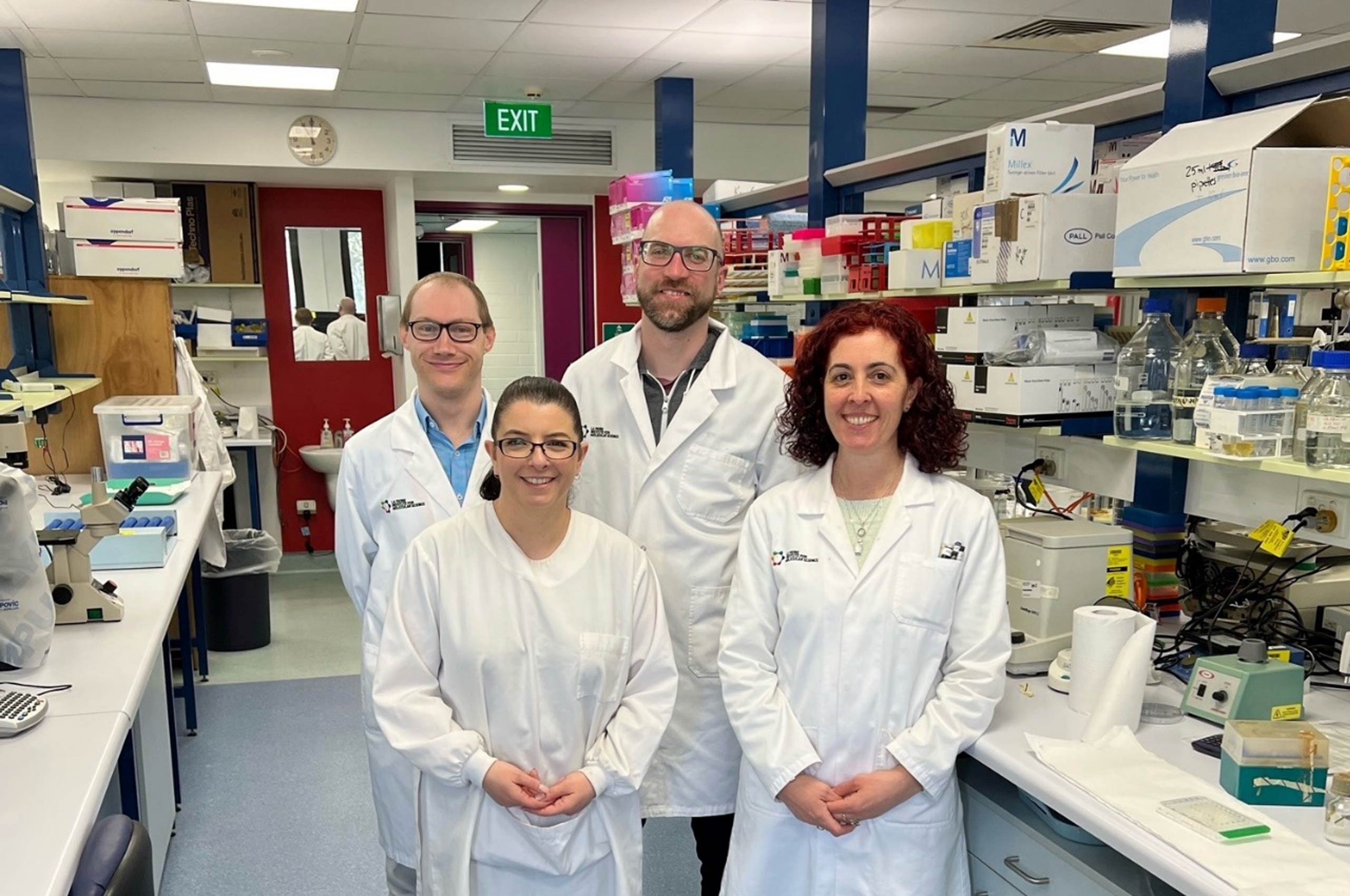Imunexus

La Trobe alumni who’ve “come home” to grow their biotech business.
Partnership at a glance
- Biotech company Imunexus relocated its research and development headquarters to La Trobe in 2021.
- It’s a homecoming for founder Dr George Kopsidas and several of his staff, La Trobe alumni who are back on campus as part of a Precinct Partner company to develop novel therapeutics for several different types of cancer including small cell lung cancer and a number of autoimmune diseases including rheumatoid arthritis.
- Setting up at La Trobe has offered room to expand and connect with new university colleagues as well as building relationships with other precinct partners and La Trobe’s own network.
- Imunexus is using La Trobe’s state-of-the art equipment, saving them money they can invest in staff and product development.
- The company brings its infectious energy and expertise to campus, creating opportunities for students and staff and constantly proving what’s possible for alumni with big ideas
Case Study
When George Kopsidas was a young science undergraduate at La Trobe, universities were for study and research: teamwork between industry and academia was rare. Fast forward a few decades and Dr Kopsidas has returned to La Trobe where he is now running an ambitious biotech company that’s developing novel therapies to tackle big medical challenges.
For Kopsidas, it’s an unexpected but ideal homecoming. As founder and chief scientist with Imunexus, he’s brought his staff, several La Trobe alumni among them, to a future-focused facility with ample room to grow, state-of-the art equipment and a culture that celebrates its industry partnerships.
“Walking around the campus, it’s changed so much since I was last here. You know, there’s no more horse-and-buggies!” Kopsidas laughs. A protein engineer and molecular biologist, he completed his degree and PhD at La Trobe and made the traditional move into academia before he transitioned into industry in 2001.
In 2014, he formed Imunexus to develop “nifty technology” he had created to improve monoclonal antibody drugs. These traditional therapies are deployed to treat many conditions, but Dr Kopsidas identified potential to improve their performance for conditions including deadly small-cell lung cancer, colorectal cancer and a number of autoimmune diseases such as rheumatoid arthritis.
“There are many monoclonal antibody drugs that show only poor to moderate therapeutic outcomes and the performance of these drugs can be improved. Our technology converts these antibodies into bispecific antibodies and improves their performance. If you think of an antibody drug as the family car, our technology is like fitting a turbocharger. It’s still the family car, but now with dramatically increased performance. That’s exactly what we predict that our bispecific antibody drugs could do.”
Since Imunexus set up on campus in mid-2021, they have doubled their laboratory space. Senior Research Officer and lab manager Mary-Anne Schmidt is thrilled with the equipment and facilities at their disposal, from common centrifuges and incubators to highly specialised instruments and tissue culture facilities.
If we had moved into an autonomous space, we would have to buy everything. The fact that we can utilise the facilities and support services here is a godsend
A former La Trobe undergraduate and Honours student, Schmidt loves the collegiate environment and access to the university’s experts. She, too, was an academic before discovering the excitement of working in the commercialisation space.
“It’s quite surreal. Twenty years later and I’m almost back where I started but with so much more behind me. This is the next step, and I’m really looking forward to it,” she says.
Access to students also lured the Imunexus team to La Trobe, and they aim to take on PhD and honours students.
“We were students and understand that a good teaching environment will set them up for a long, engaging career. We try to make science fun and exciting here,” says Kopsidas. “Our research is focused and there’s always an endpoint in mind, which are therapies that are going to help people.
“For us, it was really an easy decision to take up the La Trobe space. I can’t see us leaving anytime soon.”
To find out more on our partnerships, please contact us.